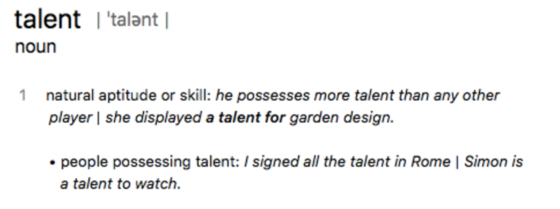How to find good employees: hire for skills, not talent
To find good employees, focus on measurable skills rather than vague concepts of talent. Conduct a skills gap analysis, write skills-based job descriptions, advertise where job seekers are, structure your interview process to assess job-relevant skills, and use assignments to simulate real work tasks.

Talent is a feel-good word for describing good job candidates. But, framing talent as the main recruiting and retention issue for companies does us all a disservice. Recruiting employees with ‘talent’ is subjective, bias-laden and imprecise. Successful hiring programs focus on how to find good employees with measurable skills instead.
Hiring for talent is vague
Hiring for ‘talent’ is too vague to be useful. Recruiters and hiring managers alike use ‘talent’ as a buzzword to describe the kind of people they want to hire. But, like other buzzwords, ‘talent’ is a fuzzy concept. Nobody knows what it is or how to measure it. Let alone how to find employees with those desirable talents. However, talent is meant to be ‘natural’ and spotting it is meant to be intuitive.

But like anything else deemed ‘natural’, the idea of inborn talent greases a slippery slope. For, more often than not, ‘natural’ is just a euphemism for “something I like.” And ‘talent’ is just a euphemism for “someone I like.” Focusing on talent limits employees and employers alike because it glosses over specific skills in favor of intuition and flattery. It also downplays the value of hard work.
How are skills and talent different?
‘Skills’ and ‘talent’ are not synonyms. Talent is general and innate. Skills are specific and learned. If I look for a ‘talented’ writer to join my team, I’ll send myself on a search for a unicorn. But if I look for someone who has taken the time and effort to develop:
- Solid research skills
- A good grasp of grammar
- Strong logical reasoning skills
- And the skill to accept edits with grace
Then I’ll be able to find a good writer.
How to find good employees based on skills:
Run a skills gap analysis
Running a formal skills gap analysis isn’t as trendy as searching for ‘top talent’, but it’s more effective. Conducting a skills gap analysis helps you identify the skills your team needs to meet your business goals. Once you identify the skills you need to scale, you can winnow them down into specific jobs and start thinking about where to find employees who’ll meet your criteria and needs.
Write skills-based job descriptions
Traditional job descriptions focus on proxies for skills, not on skills themselves. Proxies for skills include college degrees, years of experience and specific knowledge of software packages. But, these proxies aren’t necessarily indicative of underlying skills – for example, coding ability has no correlation with fancy or advanced college degrees. The best way to hire new employees who can actually do the job is to ask for what you need, not for proxies.
Advertise where job seekers are
You might be wondering how to find good employees online – or, more accurately, how to make sure you target the most skilled ones when there’s such a large number of job boards and career sites. The key is to experiment with different websites, track the results you get (number of applicants vs. number of hires) from each of them and identify which are the best places to recruit employees based on different jobs and skills.
Note that each job board might have different requirements for job posting and might attract different candidates – i.e. you may find more effective to attract candidates for designer roles by advertising on niche job boards.
To help you out, we built a few guides on how to find good employees using the most popular job boards and social platforms:
- How to find employees on Indeed
- How to find employees on Craigslist
- How to find employees on Facebook
- How to find employees on Stack Overflow
Structure your interview process
Structured interviews are designed to assess job-relevant skills. They are more effective than their unstructured, intuitive counterparts. To structure an interview effectively, hiring managers and recruiters draft a list of job-related skills and craft specific questions to measure each of those skills. For more instruction on how to recruit employees by following a structured interview process, here’s our tutorial and ebook.
Simulate real work tasks with assignments
Assignments are the most effective way of finding good employees. As anyone who has screened applicants knows, many people are able to talk about their skills and experience (at length). The problem begins when you don’t really know how to find the right employee for the job, i.e. you can’t always tell whether candidates can perform until you ask them to simulate the job you’d like to hire them for. I was reminded of this fact when hiring an editor for my team last year: a lot of people can talk up their editing abilities. But, an editing assignment let the most skilled applicant shine through. When we welcomed her to the team, we hired someone with real skills, not vague promises.
Next time you’ll have an open role, don’t get overwhelmed wondering “Why is it so hard to find good employees?” Focus on skills rather than intangible talents, structure your hiring process and, soon enough, you’ll be welcoming your new team member.
Frequently asked questions
- What is the difference between hiring for 'talent' and hiring for 'skills'?
- Hiring for 'talent' is often vague and subjective, while hiring for 'skills' is specific and measurable. Talent is seen as innate, while skills are learned and developed. Focusing on skills rather than vague concepts of talent can lead to more effective hiring.
- How can a company find good employees based on skills?
- Companies can find good employees by running a skills gap analysis to identify the skills needed to meet business goals. They can then write skills-based job descriptions, advertise where job seekers are, structure their interview process to assess job-relevant skills, and use assignments to simulate real work tasks.
- What is a skills gap analysis and how can it help in hiring?
- A skills gap analysis helps identify the skills a team needs to meet business goals. It can pinpoint the specific skills required for a role, allowing companies to focus their hiring efforts on candidates who possess these skills.
- Why is structuring the interview process important in hiring?
- Structured interviews are designed to assess job-relevant skills. By drafting a list of job-related skills and crafting specific questions to measure each of those skills, hiring managers and recruiters can more effectively identify candidates who are a good fit for the role.
- How can assignments help in the hiring process?
- Assignments allow candidates to simulate the job tasks they would be performing if hired. They are an effective way of assessing a candidate's skills in a practical context, beyond what can be gleaned from interviews alone.




